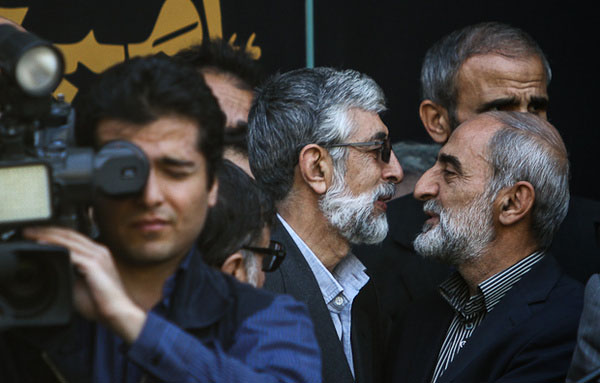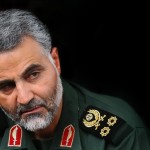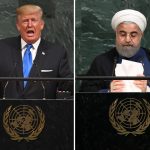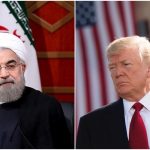by Ali Reza Eshraghi
News media accounts of reactions from Iran to the recent talks in Geneva remind me of a joke that has gone viral there:
A salesman shows a variety of hearing aids ranging in cost from one to a thousand dollars to a customer, who then asks, “How well does the one dollar one work?” The salesman responds, “It doesn’t work at all! But, people speak louder when they see you wearing it.”
For the first time, different political factions within the Islamic republic of Iran are in agreement about President Hassan Rouhani’s method for resolving the nuclear issue and negotiating with the United States. But local and international media coverage has focused on Iranian radical groups who have shrunk in size and been marginalized after June’s presidential election. While this group occupies a small space in Iran’s current nuclear discourse, it has been presented as a major actor by the media.
Much of this coverage focuses on Kayhan, the Iranian daily newspaper, and its editor-in-chief, Hossein Shariatmadari, who has openly criticized the Iranian delegates for keeping the details of their negotiations with the P5+1 powers (the United States, Britain, France, Russia and China plus Germany) confidential. For Shariatmadari, this secrecy is an indication that the Iranian delegation is making a bad deal.
Of course, Khayan and Shariatmadari are not the only ones who have criticized Iranian diplomats for keeping things under wraps when it comes to the nuclear issue. In October 2009, when the Saeed Jalili-headed negotiation team was trying to make a deal with the P5+1 in Geneva, Iranian reformist media also complained about the lack of available details on the discussions.
At that time, Mir-Hossein Mousavi, the sidelined candidate of Iran’s 2009 presidential election, accused the negotiators of trading the long-term interests of Iranians for “nothing” in a statement.
And last year — amid rumors of a meeting between Ali Akbar Velayati, a senior aide to Supreme Leader Ali Khamenei, with American officials — Kalameh, the flagship website of the opposition Green Movement, demanded that the negotiations be “transparent and [conducted] in front of people.”
Shrinking prominence
This time it’s the hardline Kayhan that has printed the loudest complaints against the confidential negotiations. But things are different now. Not long ago, each time Kayhan started a game of ball, it was immediately picked up and passed around in the Principlist front. Today, no one is willing to play along with the well-known daily.
Indeed, other conservative media outlets affiliated with the Iranian Revolutionary Guards Corp (IRGC) apparently have no problem with the nuclear negotiations remaining confidential. Here is Sobh-e Sadeq, the official IRGC weekly, expressing satisfaction in its post-Geneva talks coverage:
“The Iranian delegation stressed the importance of respecting Iranian nation’s red lines, as well as the need of change in the position of the West from selfishness to a win-win interaction. [Our delegation] would not back down from the nation’s rights.”
Even more surprisingly, the IRGC has absorbed Rouhani’s vocabulary and is talking about a “win-win interaction with the US.” The Javan daily, another media outlet associated with the IRGC, stressed on Monday that the actions of the Rouhani administration “have the permission of the Supreme Leader.” Javan took this a step further by arguing that even if the administration was unsuccessful in the negotiations, Iran would still emerge victorious because it would be obvious that it was the Americans who, contrary to their claims, have no interest in resolving disputes and restoring relations.
Gholam Ali Haddad Adel, the head of the Majlis Principlist faction whose daughter is married to the Supreme Leader’s son, has also supported the confidentiality of the nuclear negotiations. Considered a hardliner, Haddad Adel, who used to favor Kayhan, could have remained silent in this debate. But he has criticized the newspaper for basing its suspicion of Iran’s diplomatic team on what he considers “the words of the Zionist media.”
With such remarks, Haddad Adel is — perhaps unintentionally — paving the road for reformists to launch a more powerful attack against the radicals. Mir-Mahmoud Mousavi, the former Director General of the Foreign Ministry and the brother of Mir-Hossein Mousavi, has also accused Iranian hardliners of using the language of Israeli hardliners. He believes they both “are trying to weaken Iran’s position in the talks.”
The position of Haddad Adel, the IRGC or even Ahmad Khatami, the radical and sometimes callous Tehran Friday Prayers Leader who also said Rouhani’s administration should be trusted, has confused analysts who measure Iranian politics with a who-is-closer-to-the-Supreme-Leader tape. These pundits are uncomfortably surprised each time they come across such perplexing results. The last such surprise occurred during Iran’s 2013 presidential election when Saeed Jalili, Iran’s nuclear negotiator who was touted as a favorite of the Supreme Leader, lost the vote.
After Ahmadinejad
Of course, it’s crucial to observe certain significant developments in Iran’s nuclear and foreign policy discourse that have occurred since Rouhani took office a few months ago. First, Iranian media can now write more openly and include a variety of opinions about their country’s controversial politics. This is why Mohammad Mohajeri, the editor-in-chief of the popular Khabar Online website and former member of the editorial board of Kayhan, reminded Shariatmadari that Jalili’s former negotiating team had tougher restrictions for the press. Before, “the press would get some burnt intelligence and were then told not to even discuss that useless information because of the confidential nature of the talks.” Compare that situation to the present when trying to gauge the level of change. Last week, for the first time, Iran’s Foreign Minister Mohammad Javad Zarif took a group of Iranian reporters from various media outlets to Geneva. Each day they were briefed repeatedly by members of the Iranian team.
That the reformist media are not alone in attacking and quibbling with the hardliners is another new development. The moderate and progressive Principlists, in an unwritten division of labor with the reformists, have taken on the task of silencing the radicals themselves. Popular news websites affiliated with the Principlists like Alef, Khabar Online and Tabank have constantly — albeit with a softer tone — criticized Iran’s radicals since the talks in Geneva.
Bijan Moghaddam, the managing director of the widely circulated Jam-e Jam daily and the former political editor of the hardliner Fars News Agency, has warned the radicals that the “Iranian society has banished them” and asked hardliners to voice their criticism logically and “without creating a ruckus and swearing.”
Finally, there is now a visible rhetorical shift in the debate over Iran’s foreign policy. Critics of Rouhani’s diplomacy team do not merely rely on mnemonic tropes and the Islamic Republic’s ideological repertoire in their arguments. They are also invoking Iran’s “national interest” in criticizing the administration’s diplomatic method. Such changes are even visible in Khayan’s tone. For example, the daily recently criticized Rouhani for publically announcing ahead of the Geneva talks that the treasury is empty, saying that such statements would weaken Iran’s negotiating position.
In such an atmosphere, it’s not surprising that critics of the government’s foreign policy claim they are aiding the administration’s negotiating strategy. As a radical commentator recently said in an interview with the Javan daily, “President Rouhani can use the views of those opposing the talks with the US as powerful leverage to haggle with the US.”
Photo: Gholam Ali Haddad Adel greets Hossein Shariatmadari. Credit: Jam News






One step at a time. Or perhaps, many, though not in the public light. At least we are being given a look from another angle, not just from the usual hawkish stand point. Keep them guessing, kind of different considering past episodes that have taken place. Positive start[s], hopefully will lead to a successful solution for the M.E., even if one or two don’t agree. It’s the whole picture, not just what one country wants. We shall see how this unfolds, keeping the hawks in check.